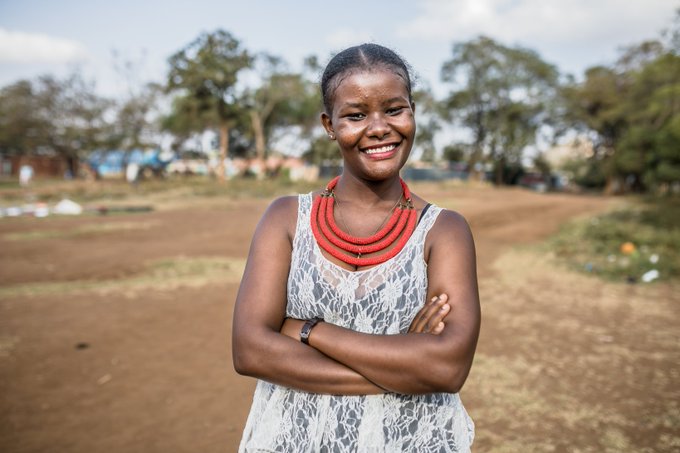Kenya’s confirmed cases of COVID-19 has reached the hundreds, and many counties, including where we work, have been put under curfew. Our immediate worry is of people’s ability to access the healthcare they need, especially young people. At DSW and as a Community Health Education, Nursing Administration and Research student at Moi University, we have seen firsthand the impact an eroded health system has on a population.
According to the World Health Organization (WHO), half of the population in the Africa region have no access to modern health services. A region with high population densities, high rates of malnutrition, high youth unemployment, and limited access to water and washing facilities. There is a great concern for the health of individuals with co-infection, or suppressed immunity. An estimated 40% of the billion people worldwide impacted by poverty-related and neglected diseases (PRNDs) such as HIV and AIDS, Malaria and Tuberculosis live in the WHO Africa region.
As suppressing the transmission of COVID-19 became the main line of attack for countries across the world, not only those with fragile health systems, diversion, and closure of health and educational services raised concerns. Schools are safe spaces for information and basic needs. Many young people rely on school lunches and school health clubs for food and access to information and services. Malnutrition makes young people more susceptible to disease.
DSW Youth Champions have worked hard to increase the uptake of sexual and reproductive health services among young people – through establishing youth-friendly centers. These have been closed and rechanneled through mainstream health care centers and hospitals – places that young people avoid out of fear of judgment or stigma. This, together with limited hours of provision because of the curfew has resulted in a drop in young people seeking out such services.
On top of this, there are expected shortages of health commodities as global supply chains buckle under the strain – contraceptives, menstrual health, and other sexual and reproductive health items. This like all crises will affect women and girls the most. From unmet health care needs to higher risks of domestic violence, and the risks of being on the front line. Women make up over two-thirds of the global health and social sector workforce. Disease outbreaks affect men and women differently, and our response must consider everyone.
The only real defense against an epidemic is quality health care for all, otherwise known as Universal Health Coverage. This should be a pillar of any future EU-Africa collaboration. Africa’s young population will not be spared by the COVID-19 epidemic. Directly or indirectly, we will be impacted by the disease and/ or the socio-economic consequences of the crisis. We need to ensure that young people are protected from present and future risks. We will only unlock the potential of young people if they are healthy. This requires affordable, accessible and age-appropriate care for all.
The rapid spread of COVID-19 reminds us that now is the time to invest in robust health systems and in developing novel, reliable and affordable tools – diagnostics, vaccines, and treatments for all. We will not solve tomorrow’s challenges with yesterday’s solutions. New defences will be born out of pooling resources and expertise. The EU has a thriving scientific community and Africa has great potential for innovation. There are long-established partnerships between the EU and Africa, such as the European and Developing Countries Clinical Trials Partnership (EDCTP), which exists to accelerate the development of new tools against poverty-related and neglected diseases. This collaborative effort has delivered massive scientific breakthroughs, such as the paediatric treatment against HIV. We need to invest more in similar partnerships in the future.
As countries turn inwards to try to get to grips with the epidemic, our real hope in winning this war is through demolishing the barriers that block cooperation, knowledge exchange and joint research. Together we have the power to find a global solution. To make the world a better place for everyone, whatever their age or gender, and wherever they live. Together we are stronger.
This piece was co-written by Mercy Kioko, a Community Health Education, Nursing Administration, and Research Student and DSW Youth Champion in Kenya and Cécile Vernant, Head of the DSW EU office.

